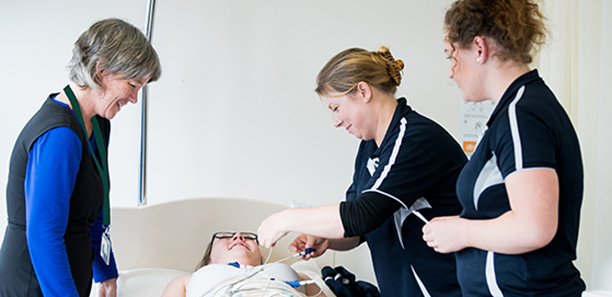
The Nursing Boom as Boomers Age: What This Means for the Nursing Profession
The generation known as “baby boomers” have contributed to numerous advancements in modern workplaces, and they are now reaching the age of retirement. Baby boomers were given their name due to the higher-than-average birth rate that followed WWII. This now means there are more people requiring aged care than ever before, placing strain on the nursing industry.
In this article, we’re discussing the unprecedented challenges that have arisen in the nursing industry and predicting the industry-wide changes that will result.
New Challenges for the Nursing Industry
As the older demographic reaches retirement age, new challenges are arising in the medical field. People in this generation are living longer while developing a higher number of illnesses than previous generations. Baby boomers have a higher rate of hypertension, high cholesterol, obesity and diabetes, placing incredible strain on the healthcare industry.
It isn’t unusual for people to require additional healthcare services as they age; however, due to the sheer size of this generation, the demand for nurses is soaring. Hospitals are feeling the strain of increased patient numbers sooner than other healthcare organisations. Focusing on alternative healthcare settings, such as home care and outpatient clinics, may create opportunities for job growth in this field.
The Number of Experienced Nurses Is Decreasing
Many experienced baby-boomer nurses, including many leaders in the industry, are retiring. Unfortunately, these professionals are retiring at the same time as the demand for nurses soars. As baby-boomer nurses leave the profession, educational facilities will need to attract a new generation of nurses to take their place.
The major concern is not with the number of nurses, but in the intellectual assets that will be leaving the field. It’s now vital to prepare the next generation of nurses for the workforce through high-quality education programs and hands-on training.
The Future of Nursing in Australia
Technological advancements in the healthcare industry are opening new avenues for nurses, changing how we diagnose and care for our patients. Continued leadership and innovation will be crucial to the support of these developments and creating a smooth transition between the two generations of nurses.
Now and in the future, nurses will play a more diversified role in patient care, offering alternative methods of aged care that require smarter usage of resources and less hospital space. Many registered nurses may pursue training in clinical practice so they can support the shortage of healthcare professionals in rural areas.
Combatting the Challenges with Further Study
Ambitious registered nurses who emerge from the next generation may choose to expand their skills through further study pathways. As the healthcare sector changes, it’s important to stay up to date with the latest technology, and this is possible through postgraduate study and TAFE courses online, including the Diploma of Nursing.
Speak to TAFE Gippsland about flexible study options as you engage with key developments in the nursing industry. Find out more by calling 1300 133 717 or contacting us online.